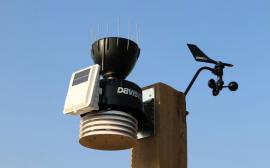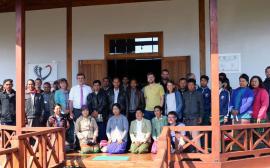The conservation of Indawgyi Lake is grounded in science with a strong focus on adaptable, pragmatic, effective, and innovative solutions. It is essential to continually expand the knowledge and understanding of Indawgyi Lake to tackle and react to emerging threats and new developments. Local, indigenous knowledge is equally important for the conservation and sustainable development. The research ranges from environmental to socio-economic studies and is a significant aspect in each intervention to ensure effectiveness and collaboration with the local communities.
The implementation process is regularly monitored to evaluate progress and if necessary, change the approaches to maximise the success of the Indawgyi conservation programme. The regular monitoring of the lake, its ecosystems and wildlife is also essential to understand the sources, dynamics, and consequences of the various environmental impacts. The systematic sampling of water quality throughout the lake, as well as the monitoring of threatened species such as Hog deer and Eastern hoolock Gibbon, is crucial for continuously improving conservation. The regular monitoring of fishing supports the facilitation and implementation of fish conservation zones and fisheries management systems that secure the livelihoods of local fishermen. Indawgyi’s commitment to the Ramsar convention, and the flyway partnership assures regular monitoring of water birds, including monthly water bird counts during the migration season. All research and monitoring activities aim to engage the wildlife sanctuary staff, local communities, and national universities to build their capacity in environmental sciences.


